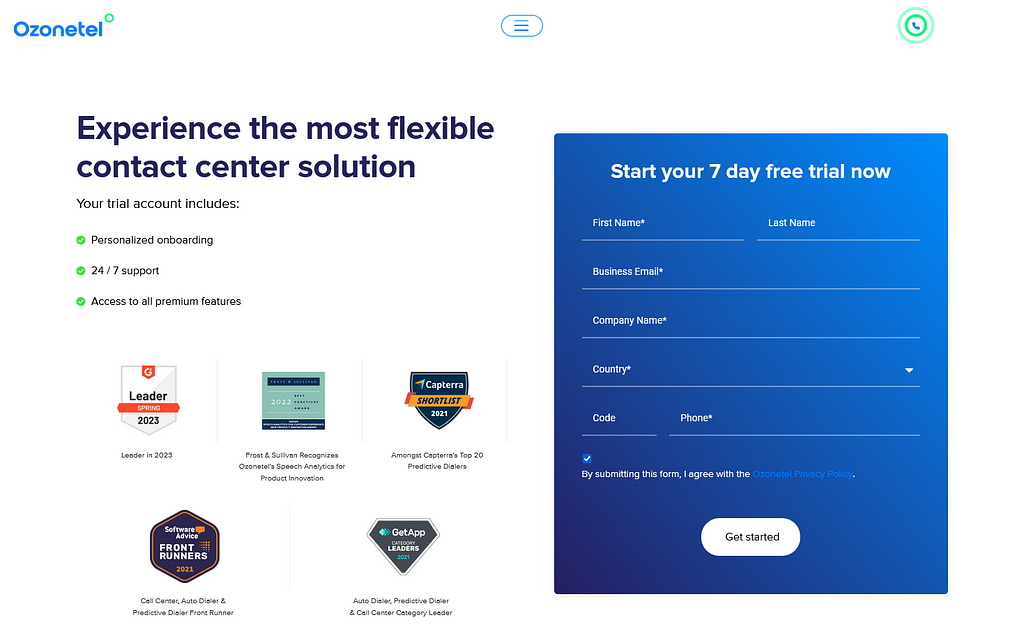- Resources
- Cloud-based telephony systems vs traditional phone systems
Cloud-based telephony systems vs traditional phone systems

Yours is a start-up in a highly competitive market with tremendous growth potential. You have a 20-member team and roles are fluid – employees are not restricted to specific departments but contribute across functions to develop the enterprise. You conduct business across three cities and plan to expand your customer base. You need to keep costs low so that you can reinvest more into making the business grow.
In the midst of all this do you really want to worry about setting up and maintaining a business phone network? Shouldn’t you just leave it to experts that do just this for you at a reasonable price?
Cloud telephony, one of the most sophisticated business tools available today, is especially effective for small or medium but growing enterprises. A growing number of businesses are making the switch from traditional business phones. A report by Markets and Markets valued the global cloud telephony or hosted PBX market at USD 4.19 billion in 2017, the base year for the research. The study predicts that the industry will grow at a compounded annual growth rate of 14.9% between 2018 and 2023. Let’s explore the many reasons why so many businesses are switching to the cloud.
What is the difference between traditional telephone systems and cloud telephony?
Traditional phone system. A business phone is what most enterprises were using before cloud telephony stormed the skies and simplified things further.
Cloud Telephony. Cloud telephony, meanwhile, is a cloud-based voice and messaging service that allows you to connect with your customers using a remotely hosted system and a virtual number. In other words, it is a remotely hosted PBX system or a cloud contact center that works on VoIP (Voice over Internet Protocol) and PSTNs (Public Switched Telephone Networks).
A cloud telephony service provider will be the interface between you and your callers. So, while business phones are confined to the locations there are connected in, cloud telephony transcends geographical boundaries and allows you and your customers to connect whenever you like, wherever you are. Simply put, it allows making and receiving calls through the web as against through conventional business phone systems.
Unlike traditional telephony, cloud telephony allows your staff to work from anywhere.
Like most innovations, cloud telephony is designed to enhance productivity. It scores over traditional business phone systems on a number of counts. We have outlined a few.
Traditional phone system.
- You had a fixed landline that is operated by a telephone company.
- You had to have a dedicated team to answer calls and direct them to the right people.
- You had to maintain an upkeep schedule. And you would have to do this for every location you do business in.
Why cloud telephony is better than traditional phone systems?
Low-cost: Let’s start at the beginning. Moving to a cloud telephony system can save you hundreds of dollars, if not more. You do not have to invest in hardware for setting up an entire business phone network on multiple premises and hiring people to operate and maintain it. All you need is an internet connection, router, and headsets. Cloud telephony also allows you to stay connected using mobile phones and tablets.
Low-maintenance: With a business phone set-up, if there is a breakdown you have no choice but to put work on hold and wait for a maintenance team to fix it. This doesn’t happen with a cloud telephony system. Problems are fixed almost immediately at the service provider’s end and since this is happening at a remote location, it doesn’t interfere with your work. More importantly, it doesn’t stop the calls from coming through. With a lot of business being conducted on calls, we know how important it is to not miss a call.
It’s quick to set up: Setting up a business phone network is a cumbersome, time-consuming process. You buy the hardware and then wait for your telecom service provider to send a team to install the lines. With cloud telephony, all you have to do is contact service providers such as Ozonetel and they will set the system up for you in no time. Ozonetel, for instance, set up the remote call center for Trilogy Smart Leads in 24 hours. This way, you and your employees can continue to focus on the core areas of the business.
Covers multiple locations: A single cloud telephony subscription can service all your business centers simultaneously. You just need to instruct the service provider to add the new location to your existing network. It, quite literally, can be done with a few clicks.
One service fits all: Your business is going to grow sooner than later. A cloud telephony service makes scaling up easier. You just need to modify your subscription plan to add more features. No need to worry about investing in additional infrastructure.
Reduces call handling time: Cloud telephony allows the use of smart features to help better a customer’s call experience and reduce response time at the business end. Ozonetel, for example, recently launched the KOOKOO Interactive Assistant widget which allows a chat session to simultaneously run with a voice call cutting down the time taken to process a customer request significantly.
For customers, it means lesser time spent on the phone when they call for support.
Allows seamless CRM Integration: Cloud telephony is highly compatible with Customer Relations Management or CRM software. You can use the IVR to direct customers to the right agent. You can install features that help you recognize the caller before you answer the call. You can also ensure the same agent sees a lead through so there is familiarity with the caller’s issues. You can have auto-dialers, which have shown to increase efficiency by up to 300 percent. To cut a long story short, your marketing efforts will pay off more with cloud telephony. John Bantock, president of Catalyst group and ZOHO implementation partner explains in his webinar on automating sales workflows “Before you actually go ahead and spend thousands of dollars on marketing and generating leads you have to make sure you have your technology set up to get a hold of those leads and qualify them,”
Critical in times of 24/7 support: If yours is the kind of business that offers customers 24/7 tech support or customer service then it would help to have a system that allows you to stay connected and have customers’ queries answered real time. Because the internet never sleeps.
Enhanced customer relations management: Cloud telephony allows you to record calls and save customer data for quick reference in future. So the next time you need to make a sales pitch to a repeat customer, you do not need to spend too much time doing background prep.
Cloud telephony doesn’t discriminate: Irrespective of how small your business is, if you choose to work with a cloud telephony service, it will allow you access to the latest technology. This can go a long way in building your reputation in the market.
According to a report published by Transparency Market research, North America was a dominant region of the cloud telephony services in India in 2017. The region accounted for more than half of the global market revenue share and is expected to continue its dominance between 2018 and 2026.
With cloud telephony, the world can be your playground. It can give your business that professional and technological edge that will help it tackle competition more effectively. In a small set-up, people perform multiple functions. Handling your phone network need not be one of them.







